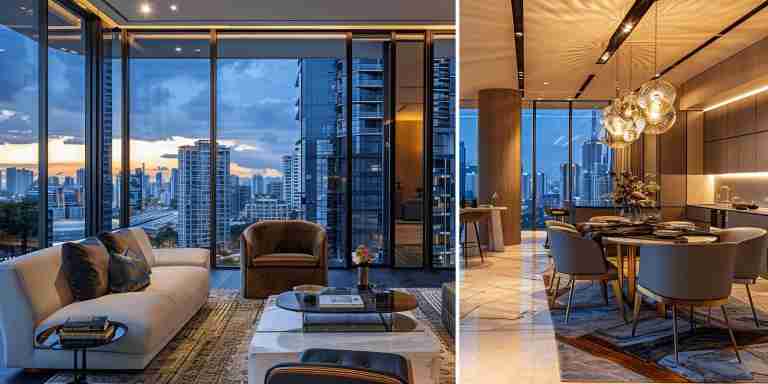Examining the Advantages and Disadvantages of Marble Benchtops for Property Appreciation A Comprehensive Review
The appreciation potential of properties is another crucial factor to consider when investing in condominiums in Singapore. Along with the government’s efforts to maintain a stable real estate market, they have implemented property cooling measures over the years. These measures aim to discourage speculative buying and promote a financially sound market. Notably, the Additional Buyer’s Stamp Duty (ABSD) imposes higher taxes on foreign buyers and those purchasing multiple properties. While these measures may temporarily affect the profitability of condo investments, they ultimately contribute to the long-term stability of the market, creating a secure investment environment.
1. Aesthetics:
2. Durability:
1. Cost:
Disadvantages:
Marble is a porous material, which means it can absorb liquids and stains if not sealed properly. This can be a significant drawback for those who frequently use their benchtops for cooking and food preparation. Spills and stains should be cleaned up immediately to prevent them from seeping into the stone and causing permanent damage. This can be a hassle for some homeowners, especially those with young children who are prone to making messes.
One of the primary advantages of marble benchtops is their stunning beauty. Each slab of marble is unique and has its own distinct veining pattern. This means that no two marble benchtops will look exactly the same, making it a sought-after material for those who want a unique and luxurious look in their homes. Marble also comes in a variety of colors, from classic white to darker shades like black and gray, giving homeowners plenty of options to choose from to match their interior design.
2. Porosity:
Contrary to popular belief, marble is surprisingly easy to maintain. Regular sealing can prevent staining and etching, and daily cleaning with a mild soap and water is all it takes to keep marble benchtops looking pristine. Unlike other materials like wood or laminate, marble does not require any special treatment or products to maintain its shine and luster. This makes it a practical choice for busy homeowners who do not want to spend a lot of time on benchtop upkeep.
With its strong economy, stable political climate, and well-developed infrastructure, Singapore remains a top choice for both local and global property investors.
However, strict regulations and the high cost of land in Singapore make it challenging to create new condos, leading to a limited supply and high demand, resulting in a competitive and lucrative market for investors.
Marble is a natural stone, which means it is incredibly durable. It can withstand high temperatures without cracking or discoloration, making it an ideal choice for kitchen benchtops where hot pots and pans are regularly placed. Marble is also resistant to scratches and chipping, making it a long-lasting option for benchtops. With proper care and maintenance, marble benchtops can last a lifetime, making it a worthwhile investment for property owners.
4. Susceptible to Scratches:
Marble is a natural stone that has been used for centuries in various architectural and design applications. Its unique color and veining patterns make it a popular choice for many homeowners, especially when it comes to benchtops. Marble benchtops are not only visually appealing but also known for their durability and heat resistance. However, like any material, there are both advantages and disadvantages to using marble as a benchtop material. In this article, we will examine the pros and cons of marble benchtops for property appreciation.
3. Adds Value to Property:
While marble is generally a durable material, it is not entirely scratch-resistant. Knives and other sharp objects can leave marks and scratches on the surface of the benchtop, especially if not used with a cutting board. This can be a concern for homeowners who regularly prepare food on their benchtops and do not want to see visible scratches and marks on the surface.
Advantages:
Another disadvantage of marble is its vulnerability to acidic substances. Acids, such as lemon juice, vinegar, and even some household cleaners, can etch and dull the surface of marble. This can leave permanent stains and marks, making it difficult to maintain the pristine look of marble benchtops. Homeowners need to be cautious when using acidic ingredients in their kitchen to avoid damaging their benchtops.
4. Easy Maintenance:
One of the main disadvantages of marble benchtops is its cost. As a natural stone, it is more expensive compared to other benchtop materials like laminate or quartz. The cost can vary depending on the type and rarity of the marble slab used. Homeowners on a budget may find it challenging to justify the expense of marble benchtops, especially if they have a large kitchen or multiple benchtops to cover.
Another advantage of marble benchtops is that they can increase the value of a property. The luxurious look and durability of marble make it a desirable feature in a home. This can be a significant selling point for potential buyers, especially in high-end properties. With marble benchtops, homeowners can expect a higher return on their investment, which is essential for those looking to sell their property in the future.
In conclusion, marble benchtops have both advantages and disadvantages when it comes to property appreciation. While its stunning beauty and durability can increase the value of a property, the high cost and maintenance required can be a drawback for some homeowners. It is essential to weigh the pros and cons carefully and consider your lifestyle and budget before deciding on marble as a benchtop material. With proper care and regular maintenance, marble benchtops can be a worthwhile investment that will add value to your property for years to come.
3. Vulnerable to Acids:
Singapore’s urban landscape is characterized by towering skyscrapers and modern infrastructure. Premium apartments, strategically situated in desirable locations, offer a fusion of opulence and convenience that appeals to both locals and foreigners. These condos boast an array of top-notch facilities, including swimming pools, fitness centers, and round-the-clock security, elevating the standard of living and making them an attractive choice for potential renters and buyers. Beyond the allure of luxurious living, these amenities also translate into higher rental returns and an appreciating property value, making them a sound investment. However, due to rigorous regulations and the exorbitant cost of land, the development of new condos in Singapore is a formidable undertaking, resulting in a limited supply and high demand, creating a competitive and profitable market for investors.

